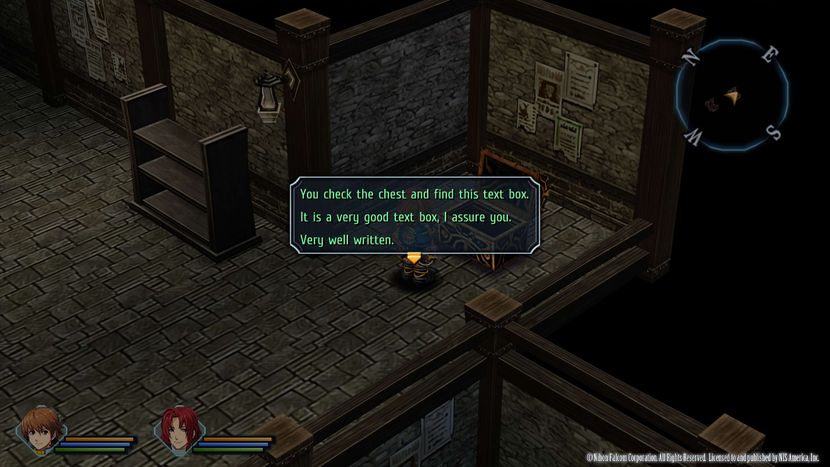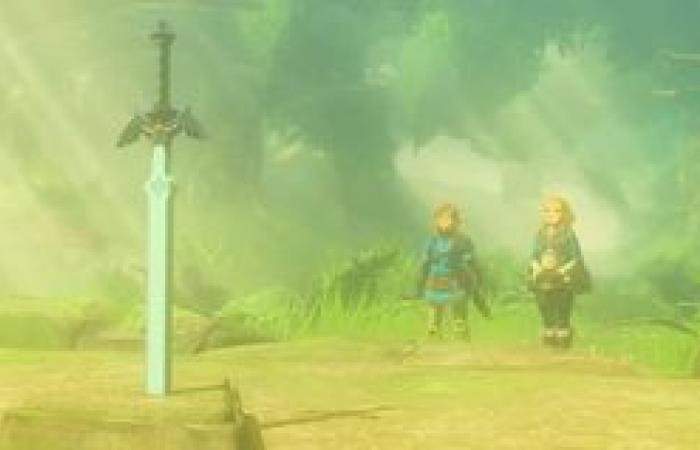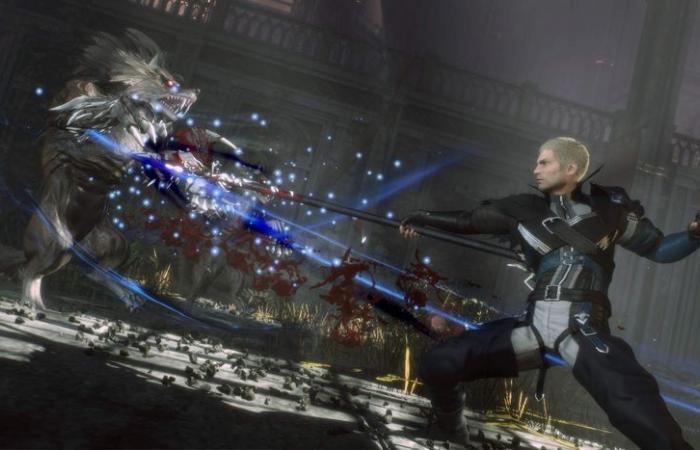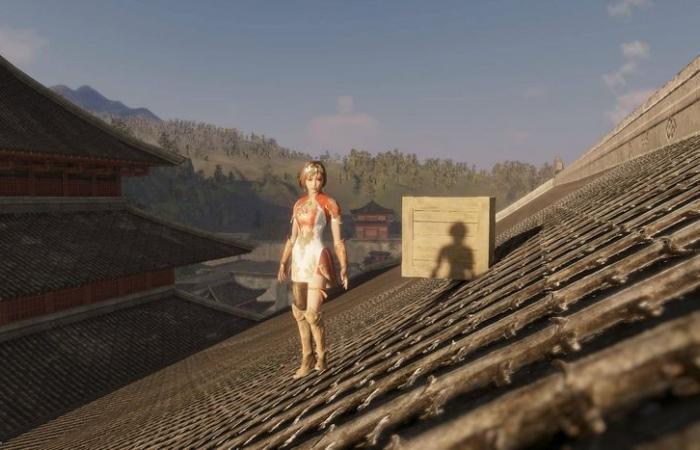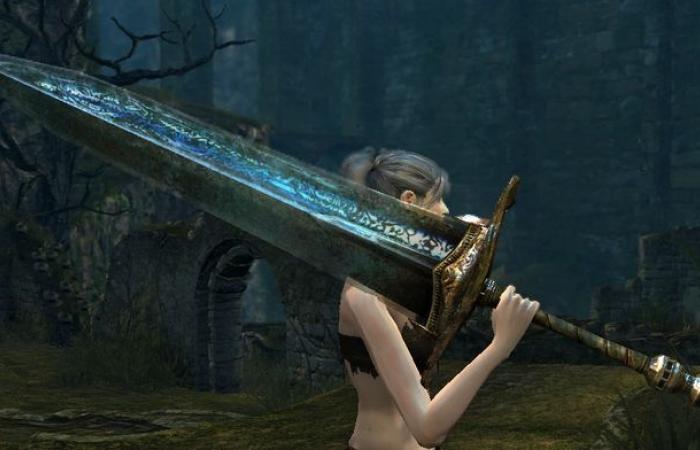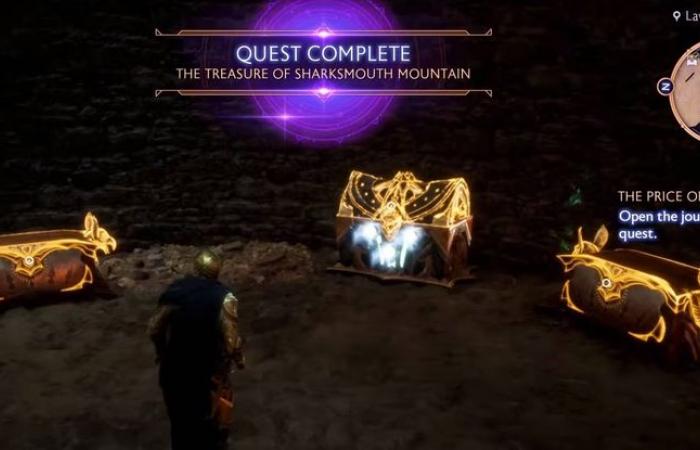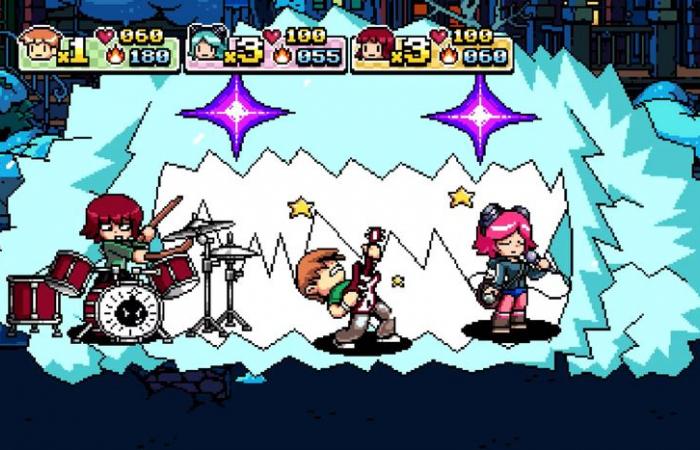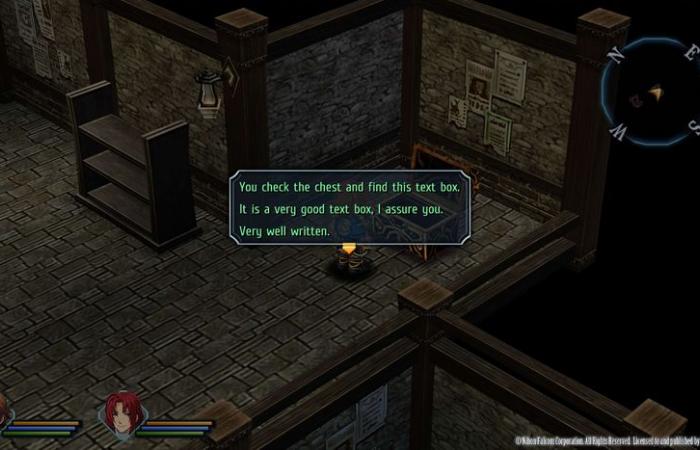The experience of Dragon Age : The Veilguard is in reality representative of what a certain fringe of RPGs has become (in the broad sense, put “action-” in front if you like), open-world games, even contemporary video games in general. Very concretely, Dragon Age 4 offers to collect flowers, plants, fabrics and minerals to harvest absolutely anywhere. Along a battlefield, we pick up precious fabrics. While exploring a necropolis, we find a quantity of gold and precious objects (more or less rare, a color system will tell you, obviously), thrown on the ground. While we fight to save our skin, we notice these endless objects, clearly identified by garish colors (yellow for everyone, green for healing potions), the game screaming in your face “don’t forget to pick this up!”. And to this are added coffers scattered to the four winds, without the slightest logic, near or far. In gloomy basements: chests, on the heights of Treviso: chests, while we lead the charge to Weisshaupt: chests…
This accumulation eventually leads to oversaturation. A feeling that only increases when, over the hours played, we realize that it is all bathed in crass futility. If we accumulate all this loot, it's for two reasons: to buy improvements for the stores (I talked about it in the test of DATV) and/or upgrade our weapons. Nothing revolutionary. But at the same time, the proliferation of chests allows access to much more powerful weapons than those you are carrying around. Consequently, the weapon and armor upgrade system is rendered almost obsolete. Especially since the improvements we get from it will never be trivial: a few additional points of damage, a 15% increase in damage [insérer n’importe quel type de dégâts random : feu, glace, foudre, nécrotique…]. We end up making a grotesque choice: abandon the crafting system or neglect the finds to favor crafting, hoping not to come across a weapon better than the two-handed ax that we have been improving every 30 minutes for 5 hours game. Spoiler: you will find much better in a trunk placed in the middle of a room that is not even hidden.
In a certain sense, DATV sticks to the clichés of paper-and-pencil role-playing games, by schematizing the Door/Monster/Treasure loop to the extreme. But it seems that BioWare (or EA?) was so afraid that you would get bored, that it changed the formula to Door/Chest/Crafting gear/Monster/Chest/Crafting gear/Treasure/Chest/Crafting gear … At will.
Also read | The technique of a game is only a means, not an end
The limits of constant reward
If I take for example Dragon Age 4it's because of the recency effect of the title in my mind. However, many other titles suffer from the same disease. Despite all the respect I have for The Witcher 3was it really necessary to put flowers, plants and minerals to collect everywhere? I will refrain from shooting the ambulance The prophesiedbut the title suffers from the same syndrome. Let us add that apart from the genres which require as a prerequisite the acceptance of the fact that we will be overwhelmed by loot (looter-shooter, hack'n'slash-…), loot proliferates.
 This proliferation has two concomitant effects: firstly the supersaturation illustrated previously, and then the reduction in the sensation of reward. It’s the rarity that makes the reward. The systematic receipt of gifts of all kinds only reduces to nothing the positive effect of duly earned compensation. The shot of dopamine that our brain demands when we play a video game will only be effective if there is a form of rarity and sacredness of the object obtained. The simplest and most universal example is that of the Master Sword in the saga Legend of Zelda. Obtaining this sword is a unique moment in the adventure, made iconic by a particular staging. It is a moment that will not be repeated during your journey, which often follows long and painful ordeals. Therefore, walking around with the Master Sword in hand has enormous symbolic value, and will surely ensure some small resurgence of pleasure hormones in the long term.
This proliferation has two concomitant effects: firstly the supersaturation illustrated previously, and then the reduction in the sensation of reward. It’s the rarity that makes the reward. The systematic receipt of gifts of all kinds only reduces to nothing the positive effect of duly earned compensation. The shot of dopamine that our brain demands when we play a video game will only be effective if there is a form of rarity and sacredness of the object obtained. The simplest and most universal example is that of the Master Sword in the saga Legend of Zelda. Obtaining this sword is a unique moment in the adventure, made iconic by a particular staging. It is a moment that will not be repeated during your journey, which often follows long and painful ordeals. Therefore, walking around with the Master Sword in hand has enormous symbolic value, and will surely ensure some small resurgence of pleasure hormones in the long term.
Now imagine that you can find 4528 Master Swords per game. Goodbye reward. Goodbye dopamine. Goodbye desire to take out said sword at the slightest opportunity. The best worst example to illustrate this being Final Fantasy Origin: Stranger of Paradisea true horror of an overabundance of irrelevant weapons.
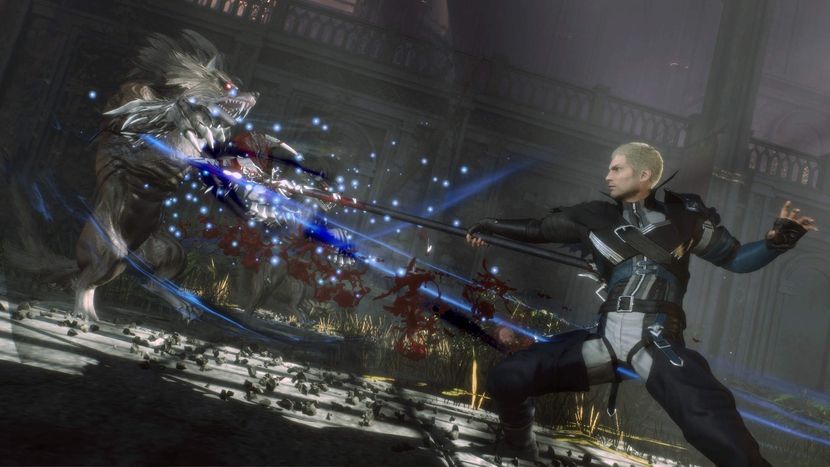
 The other disease of loot in contemporary games is the emptiness of the reward. To use the witticism that our dear Kelmazad gave me during a discussion about the reboot of God of War : “personally, loots with +2% on pirouette attacks are boring for me“. What is the point of offering players amulets, jewelry, weapons or other magical charms whose effect is almost imperceptible?
The other disease of loot in contemporary games is the emptiness of the reward. To use the witticism that our dear Kelmazad gave me during a discussion about the reboot of God of War : “personally, loots with +2% on pirouette attacks are boring for me“. What is the point of offering players amulets, jewelry, weapons or other magical charms whose effect is almost imperceptible?
Here we either reach a form of complete ignorance of how an effective reward system works, or a flawed idea which consists of believing that loot = reward = dopamine everywhere, all the time. And this whereas in reality, the result is the opposite. After having picked up the 56th ring which grants you +1% to your critical backhands on the left hand on full moon Thursdays if you wear kangaroo underwear, the only consequence is to cause you to express weariness at best, and at worst spite (with forced exhalation and dead gaze towards the ceiling). From then on the solution to remedy this appears by itself. To make collecting loot more interesting, it must become rare again, or it must have a real impact on the gameplay.
And why not favor a more realistic approach to loot? I have no problem with suspension of disbelief: when Elden Ring tells me that by killing this ghoul, I recovered 250 souls, that's fine with me. When Baldur’s Gate 3 tells me I can find the Skull of Sarhin near the Temple of Baal, ok, no problem. But when, by getting rid of two poor homeless thieves, the game offers me 500 dollars, three Colts, five survival rations and 19 horseshoes, it starts to come to pass my suspension of disbelief through the cheese grater.
By opting for a more down-to-earth collection of loot, by only finding sewing equipment from a tailor, money in shops, and armor on knights, and not in the pockets of all the troopers who will come across our way, even on the ground on the ground, without any rational justification (I put the magical justifications in there, as long as they fit into the world of the game we are playing), we would inevitably return to a standardization of the loot which I would describe as “generic”. Which would make rare loot even more exceptional.
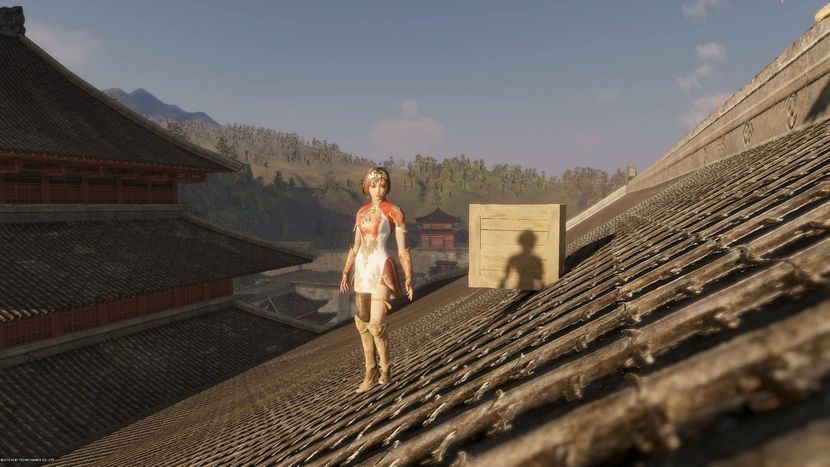
For 1d4+2 more damage
Another path would consist of making real gameplay modifications following the discovery of this or that object. It's a cliché, but SoulsBorne does this eminently well. Your rapier will not play at all in the same way as the moonlight greatsword, which itself will have nothing to do with the Hoslow floral whip. Here, it is the uniqueness of the moveset of this or that type of weapon that will prevent you from falling into a saturation phenomenon. A new weapon discovered is a new way of playing that is revealed, which arouses both the excitement of the discovery, and the long-term satisfaction of having mastered a certain way of fighting. So, for loot to regain relevance, it must offer significant variations.
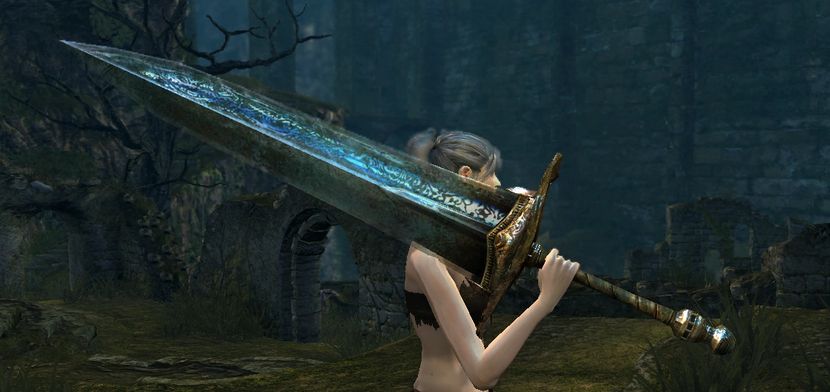
Another way to positively stimulate players to search for loot lies in the perishability that can be given to objects. A weapon that becomes dull, an armor that becomes damaged, these are all motivations to seek out new weapons, or to collect the elements necessary to repair what is broken. Such a game principle would justify an increase in the frequency of discoveries that could be made during exploration.
The fact remains that these beautiful principles generally have difficulty breaking through in AAA games. Designers and publishers are under so much pressure to make their game work in the market that often everything is done to please the public. Nothing should shock, nothing should frustrate, whether in the way of approaching the management of gameplay bricks or the game philosophy. Suffice to say that in a service meeting at certain publishers on the stock market, when Jean-Michel Game design balance “what if we limited the number of transportable weapons to 2” or “and then when the player loses his armor, well he has to finish his level in his underwear” (you get it), he must certainly wipe away the scars of a nice shouting match.
Also read | AAA games aren't viable, really?
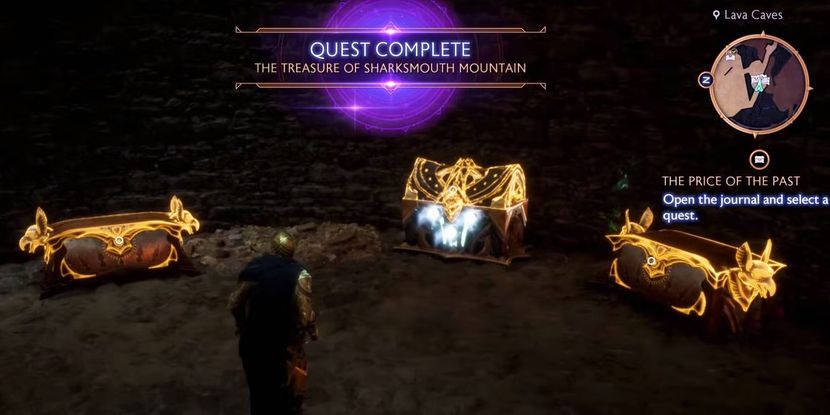
How to offer relevant loot without weighing down the player experience? Prioritize quality over quantity, establish narrative coherence of loot, reduce micromanagement, provide experimentation and immediate satisfaction, introduce a perishability system… Well in fact, there is a genre that has already done all of this very well since decades: the beat'em up. Let's quote in bulk Double Dragon (1987), Final Fight (1989), Golden Axe (1989), Streets of Rage (1991)… Until the current succession: Scott Pilgrim vs. the World, Mother Russia Bleeds, Sifu, Fight’N Rage… Most of these titles already include the principles cited above. So, of course, we sometimes find roast chickens in the trash, and for the RPG aspect, it is often starving (although River City Girls 2 do that very well).

However, when we examine each of the points of dispute above, beat'em up knows how to handle them. When you find a weapon, it modifies your character's moveset, weapons do not last over time, often, you recover said weapons from enemies who held them, and you immediately see the results of the blows dealt with the new tools that you have. we found (a katana blow across the pear is often more effective than the Opinel found on the body of a thug). In addition, beat'em up, due to its heritage from arcade culture, is often expert in managing instant gratification vs. the frustration necessary to make the player want to persevere. All this, without pushing towards overly complex mechanics, which could harm the immediate pleasure of the game and accessibility. From there to saying that to renew the so-called “modern” loot system, we would have to take a look at productions that are almost forty years old, there is only one step that I am happily taking. But I will still end with a question: apart from the force of habit, and standardized specifications, why include loot when it becomes an obligation and no longer a fun pleasure?
